The second week expanded the immersion with sessions on corporate strategy, leadership, innovation ecosystems, and sustainability
The second week of the International Immersion at Nova School of Business & Economics (Nova SBE), Lisbon, deepened the cohort’s exposure to cutting-edge themes in Artificial Intelligence, organisational memory, leadership, innovation ecosystems, and ethical business practices. Accompanied by Prof. Jayadev M., Finance & Accounting area, IIMB, the students explored how global business theories intersect with technology, strategy, and sustainability in a rapidly evolving world.
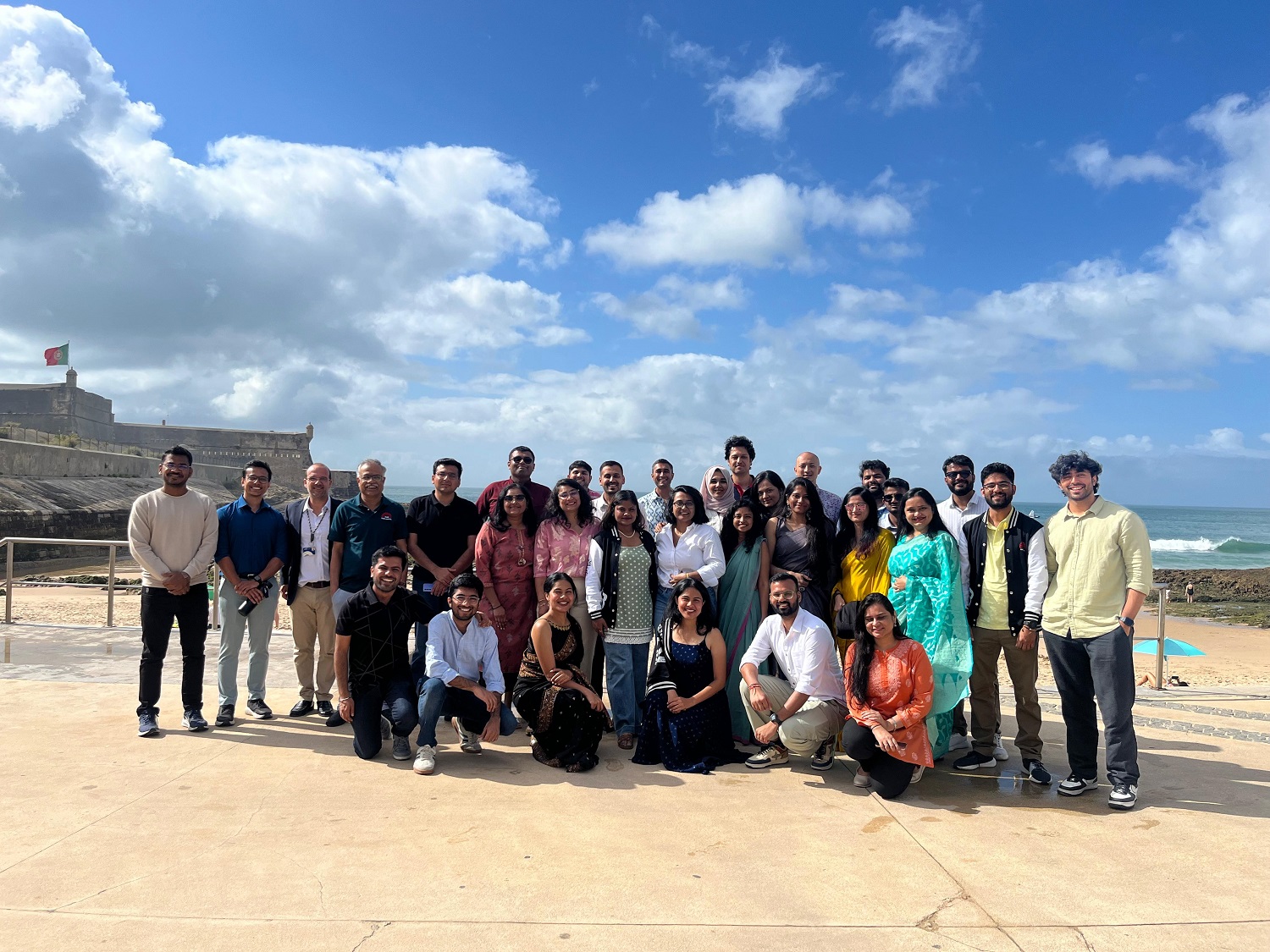 The batch of EPGP students, accompanied by Prof. Jayadev M., Finance & Accounting area, IIMB, during the international immersion at Nova School of Business & Economics (Nova SBE), Lisbon.
The batch of EPGP students, accompanied by Prof. Jayadev M., Finance & Accounting area, IIMB, during the international immersion at Nova School of Business & Economics (Nova SBE), Lisbon.
Day 4 – The Impact of AI in Business
The fourth day began with Michael Alf, an entrepreneur, author, and keynote speaker, on the topic, ‘Impact of AI in Business’, who introduced the basics of Artificial Intelligence, Generative AI, and Agentic AI. His session clarified the distinction between AI as the overarching field and Generative AI as a subset focused on language and creativity. Key insights included the framing of hallucination as ‘a feature, not a bug’ and a structured journey of GenAI adoption, from personal productivity to innovation. A practical workshop on prompt engineering, anchored by the Role, Context, Task, Tone framework, helped participants sharpen their approach to AI-powered tools. The day concluded with a guided tour of Sintra, reflecting on Portugal’s cultural heritage as part of meaningful tourism.
Day 5 – Organisational Memory as a Strategic Resource
Prof. Álvaro Ferreira da Silva, Business & Economic History area, Nova SBE, introduced the idea of strategy restoration, reinterpreting and re-enacting discontinued strategies to improve future performance. Through case studies, participants explored how organisational memory can be a powerful resource and examined risks like evaporation, leakage, dilution, and ‘reinventing the wheel.’ Anchored by the theme Um passado com future, ‘a past with a future’, the session highlighted the importance of retaining knowledge as a safeguard against organisational loss. Post-lunch, the group visited Castelo de S. Jorge and Belém, tracing Portugal’s historic Age of Discovery.
Day 6 – Leadership and Corporate Strategy
Week two began with Prof. Milton Sousa, Management & Organizations area, Nova SBE, who introduced servant-style leadership in the age of AI. His session mapped how AI evolves from assistant to colleague to autonomous agent, and the challenges this brings for empathy, motivation, and governance. They also explored the two kinds of AI users, Cyborgs and Centaurs. Participants reflected on leadership essentials, motivation at work, and practical AI use cases.
In the afternoon, Prof. Roberto Ragozzino, Strategy & Entrepreneurship area, Nova SBE, led a session on ‘Corporate strategy in the EU and US.’ Through frameworks and case studies, students examined diversification, economies of scope, transaction-cost economising, and financial synergies, ultimately asking whether corporate parents truly create value beyond alternatives.
Day 7 – Lisbon’s Innovation Ecosystem
Alisson Ávila, Head of Innovation, Nova SBE, guided participants through Lisbon’s growing startup and innovation ecosystem. Discussions covered Portugal’s global trade focus, the country’s productivity challenge, and opportunities as a gateway to the EU. Visits to Unicorn Factory Lisbon and the Beato Innovation District provided an up-close look at how hubs of entrepreneurship support scale-ups and foster cross-industry collaboration.
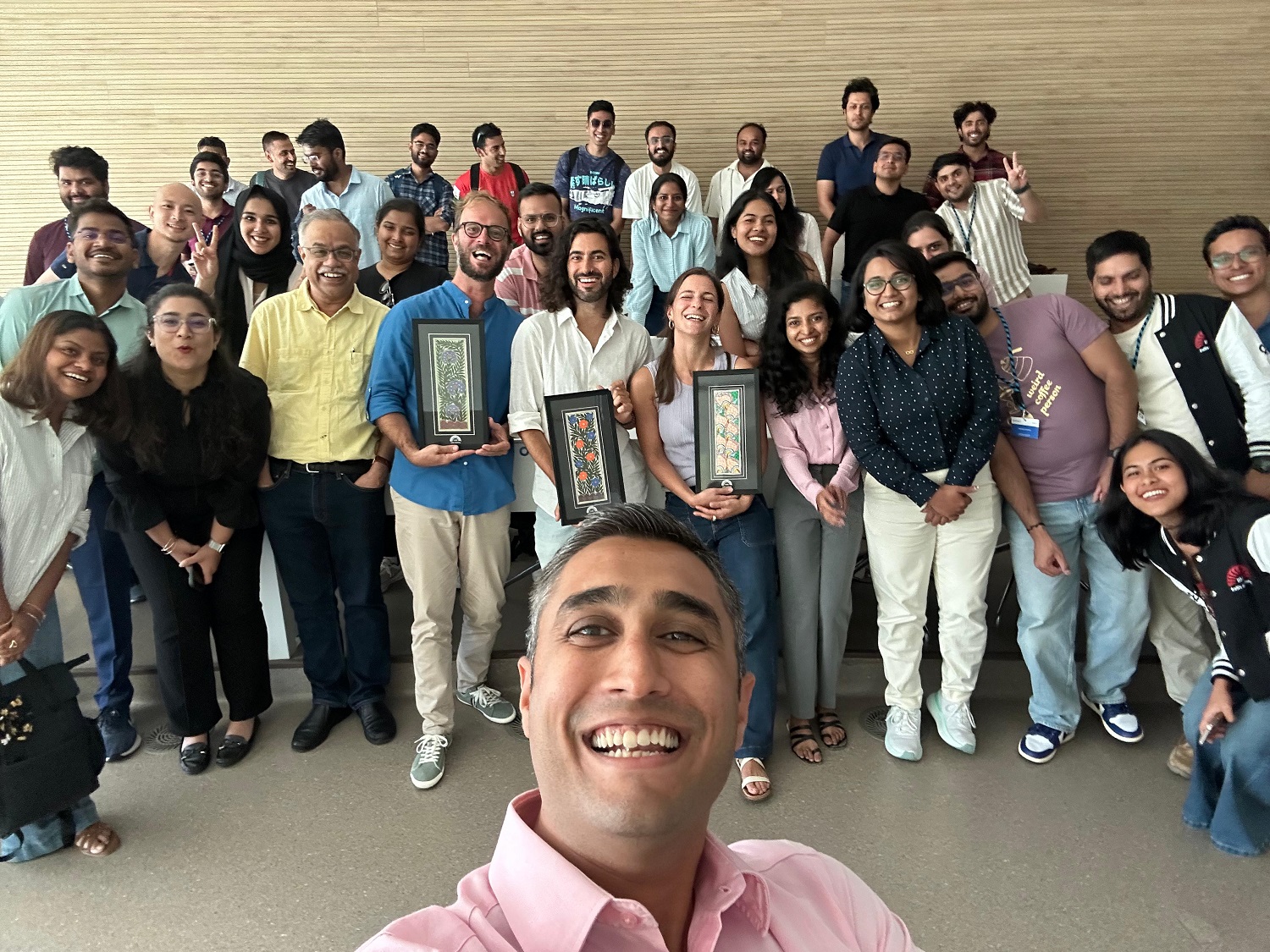 A session with Prof. Alisson Ávila, Head of Innovation, Nova SBE, as part of the EPGP international immersion.
A session with Prof. Alisson Ávila, Head of Innovation, Nova SBE, as part of the EPGP international immersion.
Day 8 – Leadership Communication & Business Etiquette
Richard Fleming, Management Communication, NOVA SBE, and Country Director, British Council Portugal, led a session on communication and business etiquette. From crisis communication cases to the motivator’s employees care about most, the session stressed clarity, alignment, and empathy in leadership. Participants also learned Portuguese workplace etiquette, formal greetings, respect for hierarchy, and effective use of narrative. The day ended with a sailing tour on the Tagus River, building camaraderie within the cohort.
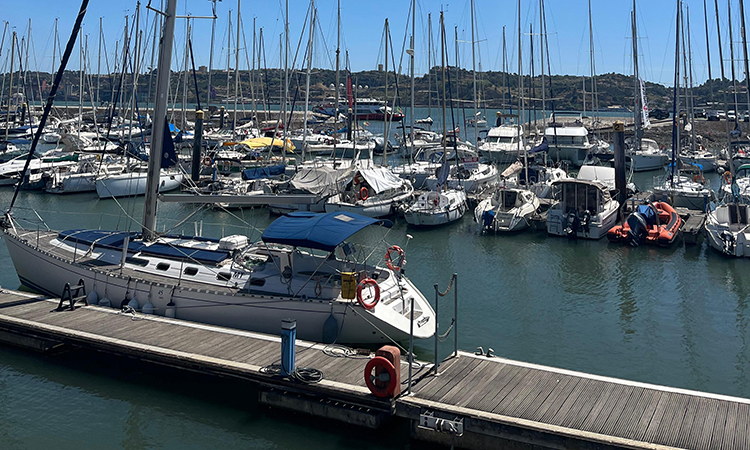 Sailing on the Tagus River offered the EPGP cohort a refreshing mix of sun, wind, and small-group bonding.
Sailing on the Tagus River offered the EPGP cohort a refreshing mix of sun, wind, and small-group bonding.
Day 9 – International Business & Geopolitics
Prof. Luís Brites Pereira, Economics area, Nova SBE, explored the evolving global economic order through multiple theoretical lenses, from Idealist models to Kenneth Waltz’s international relations framework. The session offered valuable scaffolding for managers navigating global markets and governance. Later, the group visited Câmara de Cascais, observing first-hand how the municipality manages services, sustainability, and governance for a highly diverse population.
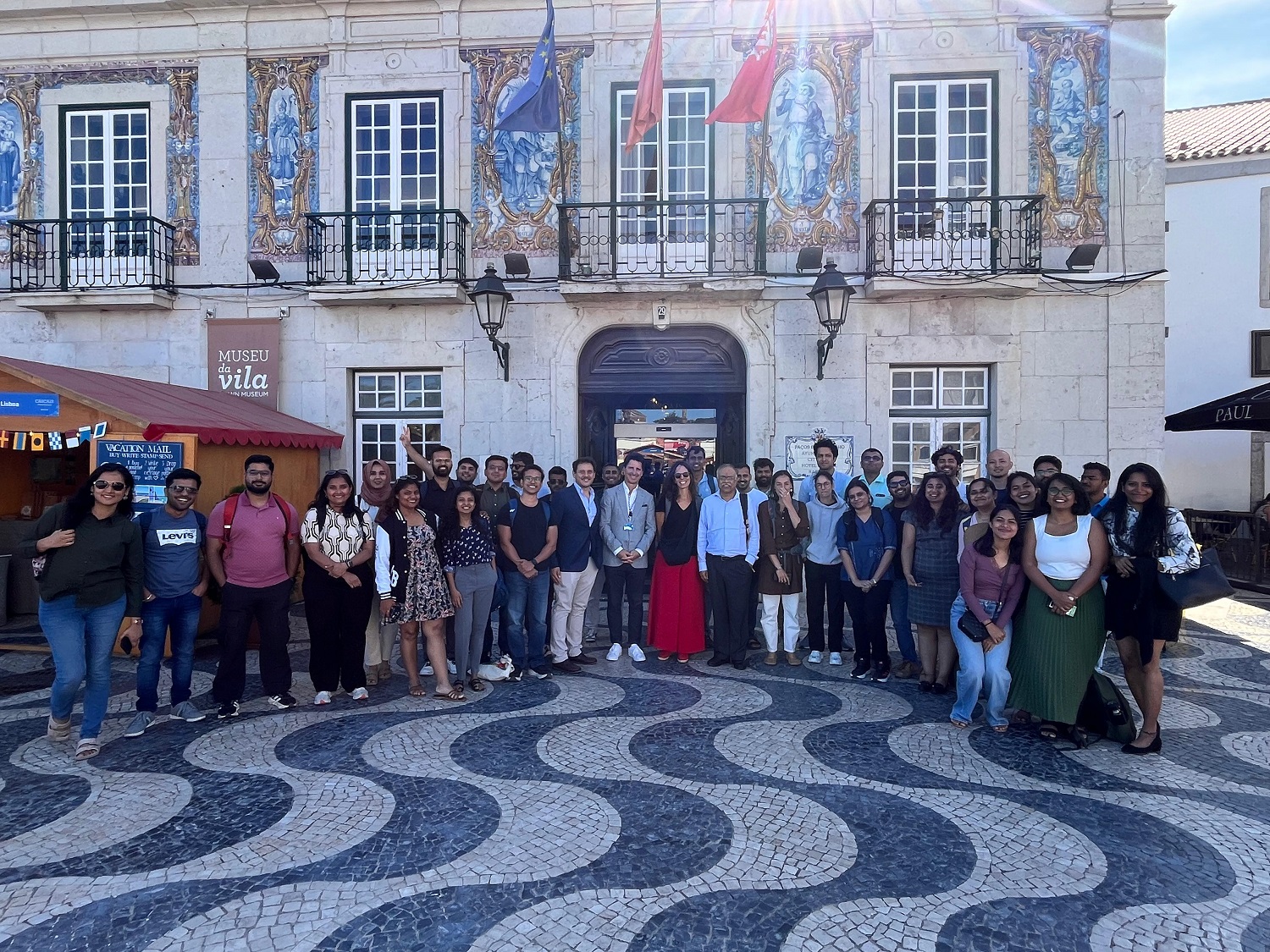 The EPGP cohort visited Câmara de Cascais, a vibrant coastal town home to over 140 nationalities, to learn how the local municipality manages its daily operations.
The EPGP cohort visited Câmara de Cascais, a vibrant coastal town home to over 140 nationalities, to learn how the local municipality manages its daily operations.
Day 10 – Ethical Growth Strategies
The immersion concluded with Prof. Ricardo Zózimo, Management area, Nova SBE, who led an interactive session on ethical growth and sustainability. Participants reflected on the four dimensions of sustainable business, society, environment, culture, and economy, and the principles of ESG-driven decision-making. A campus tour showcased Nova’s sustainability-first infrastructure, from modular lamp posts to in-house recycling systems, tying lessons of ethical growth to lived examples.
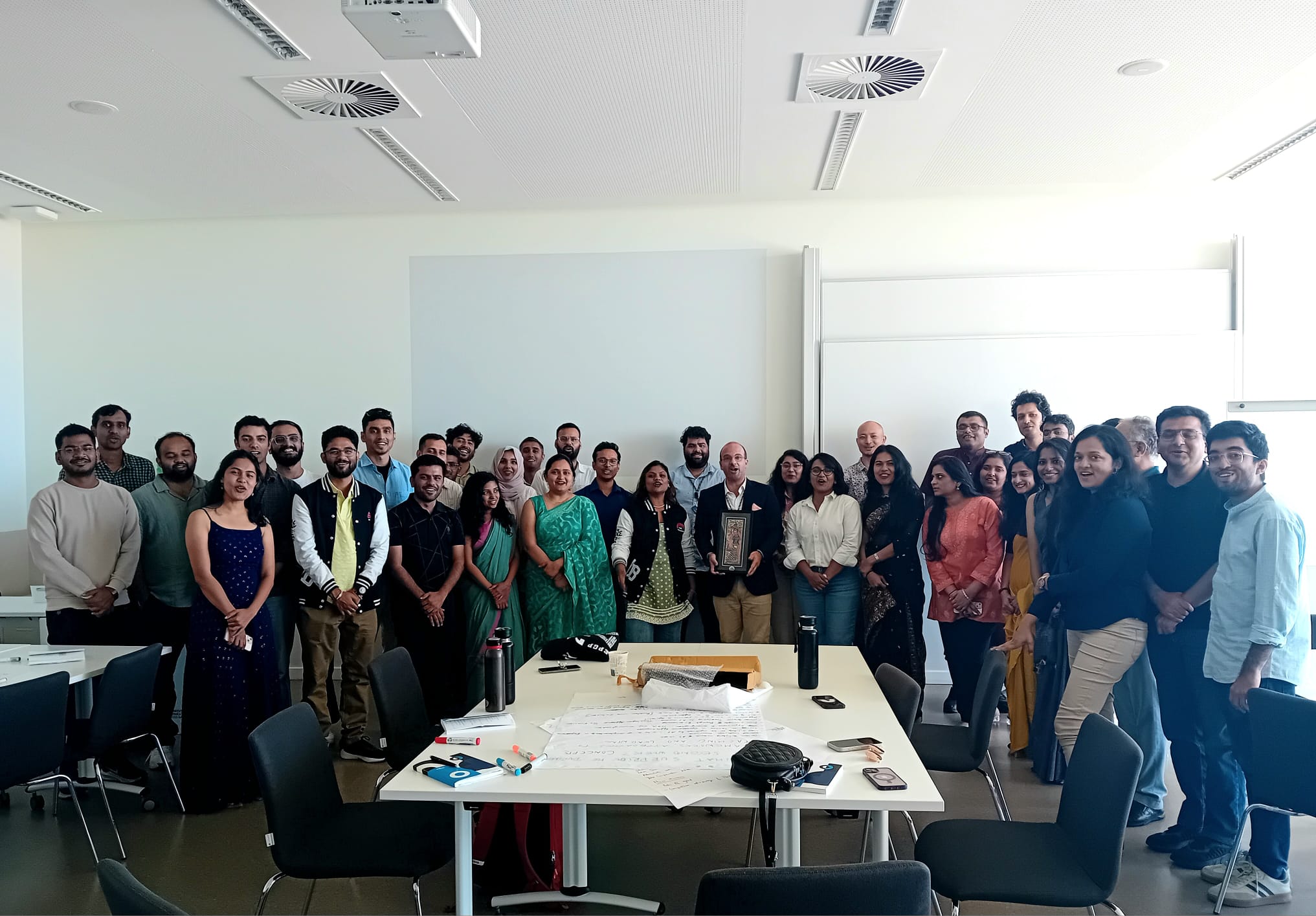 The immersion concluded with Prof. Ricardo Zózimo, Management area, Nova SBE, who led an interactive session on ethical growth and sustainability.
The immersion concluded with Prof. Ricardo Zózimo, Management area, Nova SBE, who led an interactive session on ethical growth and sustainability.
Closing Reflections
Across seven days, the immersion at Nova SBE combined rigorous academic sessions with experiential learning. Participants engaged with cutting-edge thinking on AI, leadership, innovation, geopolitics, and sustainability, while cultural and business visits contextualised these lessons in Portugal’s history and economy. For the EPGP ’26 cohort, the Lisbon experience added a powerful dimension to their global journey of learning, reflection, and leadership development.
